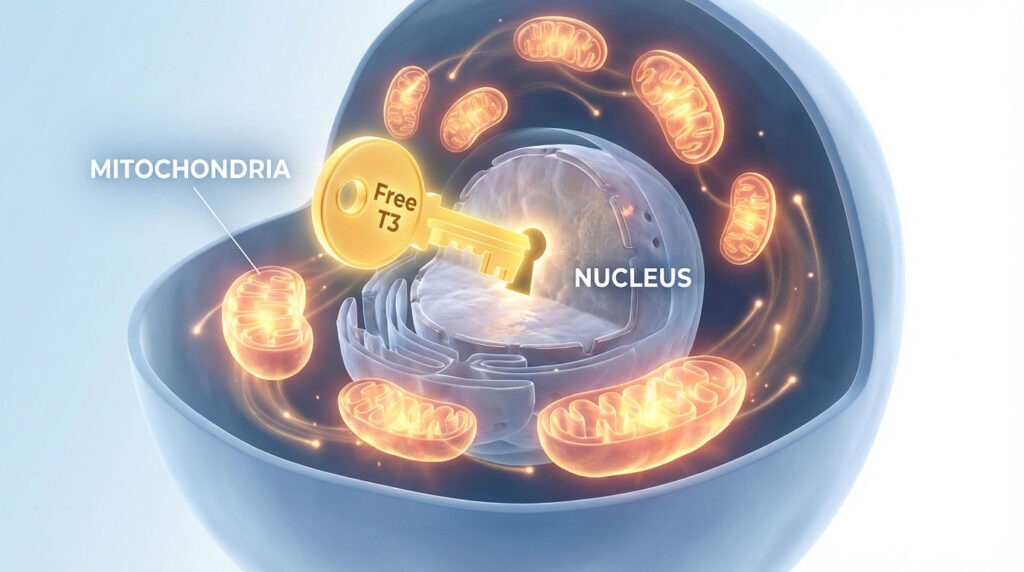Lipid Profile Test
Lipid (10)
- HDL / LDL RATIO
- HDL CHOLESTEROL - DIRECT
- LDL / HDL RATIO
- LDL CHOLESTEROL - DIRECT
- NON-HDL CHOLESTEROL
- TC/ HDL CHOLESTEROL RATIO
- TOTAL CHOLESTEROL
- TRIG / HDL RATIO
- TRIGLYCERIDES
- VLDL CHOLESTEROL
What Is Lipid Profile Test
A lipid profile test, also known as a lipid panel test, is a vital diagnostic tool used to measure various lipid parameters, including total cholesterol and triglycerides. By analysing these components, healthcare professionals can gain valuable insights into a person’s lipid metabolism and overall cardiovascular health to identify potential risk factors for heart disease.
The test provides crucial information such as lipid profile normal values, which establish the ideal range for cholesterol and other lipids. These values help in determining whether an individual has normal lipid profile levels or has fallen within the expected healthy range. Deviations from the normal lipid profile range may indicate the need for further evaluation and intervention.
Understanding Cholesterol
What is Cholesterol?
Cholesterol is a waxed, fatty substance that is present in every cell of the body. The liver produces it and is also found by eating certain foods such as egg, yolks, meat and cheese. Cholesterol is important for various functions because it helps1:
- Build the structure of cell membranes.
- Produce hormones like estrogen, testosterone, and adrenal hormones.
- Facilitate efficient metabolism, including the production of vitamin D.
- Create bile acids, aiding in the digestion of fats and absorption of essential nutrients.
Types of Cholesterol
- LDL (Low-Density Lipoprotein): Often called “bad” cholesterol. If the level is too high, LDL cholesterol can accumulate in the arterial wall, forming a blade.
- HDL (High-Density Lipoprotein): Known as “good” cholesterol. High levels of HDL cholesterol are considered beneficial because it helps reduce LDL levels.
Role of Cholesterol in the Body
- Creating cell membranes: Cholesterol helps maintain the structural integrity and fluidity of cell membranes.
- Hormone production: Cholesterol is a precursor to the synthesis of various hormones, including sex hormones (estrogen and testosterone).
- Vitamin D Synthesis: When skin is exposed to daylight, cholesterol is transformed into vitamin D. For healthy bones and calcium absorption, vitamin D is essential.
- Fat digestion: Cholesterol is used to make bile acid, which helps in the digestion and absorption of food in the small intestine.
About Lipid Panel Test
Learn everything about Lipid Profile Tests before you book lab test online. Understand the why, how, and what of this test.
What Are The Different Tests In a Lipid Panel?
A lipid profile test list consists of various tests. Understanding the different tests included can help identify potential risks and maintain optimal lipid levels. Lipid profile interpretation involves analysing triglyceride, cholesterol, LDL, and HDL levels to assess cardiovascular risk and guide treatment decisions. These tests collectively form the lipid panel and help healthcare professionals evaluate an individual’s blood lipid profile.
The critical tests in a lipid panel include:
- Total Cholesterol Test: This test measures the overall amount of cholesterol in the blood, including HDL (high-density lipoprotein) and LDL (low-density lipoprotein) cholesterol.
- High-Density Lipoprotein Cholesterol Test: HDL cholesterol, often referred to as “good” cholesterol, plays a protective role by removing excess cholesterol from the arteries. Higher levels of HDL cholesterol imply a lower risk of heart disease.
- Low-Density Lipoprotein Cholesterol Test: LDL cholesterol, also commonly known as “bad” cholesterol, contributes to the harmful buildup of plaque in the arteries. Measuring LDL cholesterol helps assess the possible risk of developing cardiovascular diseases.
- Very Low-Density Lipoprotein Cholesterol: VLDL cholesterol is usually present in very low amounts when the blood sample is a fasting sample. An increase in this type of cholesterol may indicate abnormal lipid metabolism.
- Triglycerides Test: These are a type of fat found in the blood. Greater triglyceride levels are linked to a higher risk of pancreatitis and heart disease.
Why Do Doctors Recommend Lipid Profile Blood Test?
The doctor may recommend a Lipid Profile Blood Test for several reasons, including:
- Routine Exam: As part of a routine exam, your doctor may order a cholesterol test to assess your overall heart health.
- Family History: If you have a family history of heart disease, your doctor may suggest a cholesterol test to evaluate your risk factors.
- High-Risk Factors: Your doctor may recommend a cholesterol test if you have high blood pressure, type 2 diabetes, smoke, are overweight or obese, lack physical activity, or consume a diet high in saturated fat. These factors can increase your risk for heart problems.
- Age: As you age, your risk for heart disease increases. Therefore, your doctor may suggest a cholesterol test, especially if you are older.
Overall, a Lipid Profile Blood Test provides valuable information about your cholesterol levels and helps assess your risk for heart disease.
What Are the Risk Factors for Lipid Imbalances
Factors that increase the risk for unhealthy blood cholesterol levels include 2
- Unhealthy lifestyle habits, such as consuming foods high in saturated fats, lack of physical activity, smoking, stress, and excessive alcohol intake.
- Genetics play a significant role, with familial hypercholesterolemia being a potential concern if there’s a family history of high blood cholesterol.
- Health problems like chronic kidney disease, diabetes or prediabetes, HIV infection, hypothyroidism, lupus erythematosus, overweight and obesity, PCOS, sleep apnea, and certain medications can contribute to elevated cholesterol levels.
- Some medications used to treat diverse health issues, including arrhythmia, high blood pressure, cancer, inflammatory diseases, acne, and organ transplant, can affect cholesterol levels.
- While high cholesterol can affect individuals of all ages, it’s more commonly diagnosed in people between 40 and 59 due to metabolic changes and decreased efficiency in removing LDL cholesterol as the body ages.
- Different racial and ethnic groups have varying tendencies toward high cholesterol levels, with factors like genetics and lifestyle playing a role.
- Men generally have a higher risk of high total cholesterol between ages 20 and 39, while women’s risk rises after menopause due to hormonal changes that affect cholesterol levels.
Does Lipid Profile Require Fasting?
Yes, a lipid profile blood test typically requires fasting for accurate results. Fasting for 8-12 hours before the test as it helps measure triglycerides and LDL cholesterol levels more accurately. However, the need for lipid profile fasting results may vary depending on individual factors and the specific instructions given by your healthcare provider. It is best to follow the fasting requirements provided to ensure reliable lipid profile results.
What Happens During Lipid Blood Test?
A Lipid Blood test only takes a few minutes:
- As per the scheduled duration of the blood test, a lab technician who usually collects blood samples will arrive.
- A thin needle will be utilised to draw blood from your arm’s vein.
- The needle might generate a mild pinch and some discomfort.
- The lab technician then fills a collection tube with blood and then pulls out the needle from the skin.
- They place a little bandage on the arm.
Please note: There might be slight pain or bruising at the spot where the needle was inserted, but most of the symptoms go away quickly.
Finding Lipid Panel Test
Should you book blood test online to check your cholesterol levels or go to the closest clinic and get it accomplished by a medical professional? Let’s Find Out
Are you wondering if you can take an Lipid profile test at home?
The answer is yes! You can conveniently book a lipid profile test online and perform it in the comfort of your own home. HealthcareOnTime’s at-home lab testing service, in association with Thyrocare, provides a suitable and efficient way to get necessary medical tests done from the convenience of your place without the need for a doctor’s visit or travel to a lab. It is always recommended to consult with a healthcare provider about any problems regarding your test results.
How Much Does a Lipid Profile Test Cost?
The Lipid Profile Blood Test price varies significantly depending on many factors.
- Location: Lipid profile test price in India may vary depending on the city or the region in which the test is conducted. For example, in Bangalore or Mumbai, it might be expensive as compared to small towns.
- Type of facility centres: The Lipid test price also varies between private hospitals, government hospitals, and diagnostic centres. Lipid Profile Cost is lower in government hospitals as compared to private ones.
- Healthcare centres: Diagnostic centres, laboratories and hospitals may have different Lipid test costs. It depends upon the benefits and reputation of the healthcare centre.
- Insurance Coverage: Individuals with health insurance can cover partial or all costs depending on their policy coverage and network providers.
- Other tests: Lipid screening test can be part of a larger panel of tests, such as a comprehensive cardiovascular or a Lipid panel. The overall cost may vary depending on the number and type of tests included in the panel.
- Additional services: Additional services such as home sample collection, express test results, or additional charges for special management may be paid, which contributes to the overall LPT blood test price.
On average, the Lipid Profile Test price in India can range from INR. 532 to INR. 1900, depending on the location and laboratory. By choosing HealthcareOnTime testing facilities, you can get affordable package costing for your Thyrocare Lipid Profile Test
| Package Type | Parameters Covered | Price (INR) |
| 10 parameters | Rs. 532 |
Test Results Interpretation
You received your lipid profile blood test results but still need help determining if they fall under the normal range. Read this section to know if your test results lie within the normal range or not.
What Is the Lipid Profile Normal Range?
The lipid profile test normal range 3 can vary slightly depending on the laboratory and the specific testing method used.
| Test Name | Normal Range |
| Total cholesterol | Below 200 mg/dL |
| High-density lipoprotein (HDL) cholesterol | Above 60 mg/dL |
| Low-density lipoprotein (LDL) cholesterol | Below 100 mg/dL (For people who have diabetes: Below 70 mg/dL) |
| Triglycerides | Below 150 mg/dL. |
What Medical Conditions Can Cause High Blood Cholesterol Levels?
Certain Medical conditions that can cause elevated cholesterol levels include:
- Chronic kidney disease: Impaired kidney function can affect cholesterol regulation, resulting in elevated cholesterol levels.
- HIV: It increases heart attack/stroke risk by 2 times. Medications like antiretroviral therapy increase cholesterol levels.
- Diabetes: Type 2 diabetes is associated with higher LDL cholesterol and triglyceride levels, as well as lower levels of HDL cholesterol, due to insulin resistance and poor blood sugar control.
- Hypothyroidism: Insufficient production of thyroid hormones in hypothyroidism can disrupt lipid metabolism, leading to elevated total cholesterol and LDL cholesterol levels.
- Lupus: Systemic lupus erythematosus (SLE), an autoimmune disease, can impact cholesterol levels. Lupus-related inflammation can disrupt lipid metabolism and contribute to elevated cholesterol levels.
- Polycystic Ovary Syndrome (PCOS): Women with PCOS often have higher levels of LDL cholesterol and lower levels of HDL cholesterol due to insulin resistance associated with the condition.
What Medical Conditions Can Cause Low Cholesterol Levels?
You could have very low cholesterol because of the following:
- Genetic Disorders: A rare disorder that runs in your family like Familial hypobetalipoproteinemia (FHBL)
- Malnutrition as well as Malabsorption: Inadequate intake or absorption of nutrients, including dietary fats, can result in low cholesterol levels. Conditions like celiac disease, Crohn’s disease, and malabsorption disorders can impair cholesterol absorption and utilisation.
- Anaemia: Certain types of anaemia, such as severe iron deficiency anaemia or hemolytic anemia, can be associated with low cholesterol levels. Anaemia can affect the production and metabolism of lipids, including cholesterol.
- Liver disease: Severe liver diseases, such as liver cirrhosis or hepatitis, can impact cholesterol production and metabolism, leading to reduced cholesterol levels.
- Cancer: Some types of cancer, particularly advanced stages or cancers involving the bone marrow, can lead to low cholesterol levels.
- Hyperthyroidism: An overactive thyroid gland (hyperthyroidism) can Increase Metabolism, leading to enhanced breakdown and utilisation of cholesterol, resulting in lower cholesterol levels.
Lifestyle Changes and Treatment Options
It is not a guarantee that someone with high cholesterol will get heart disease. Controlling cholesterol levels and reducing the risk of heart disease can be done in several ways. To assist control and reducing high cholesterol, a physician may suggest medication and lifestyle modifications.
The following lifestyle modifications are advised for high cholesterol:
- Engaging in consistent physical activity4
- Maintaining a healthy weight
- Stay away from or quit smoking
- Consuming fewer processed foods, saturated and trans fats, and a diet high in whole, plant-based foods
- Trying to get 7–9 hours of sleep
- Reducing the amount of alcohol consumed
Relevant Queries:
What is the ideal frequency for lipid profile test?
The frequency of complete lipid profile tests depends on the individual risk factors and health conditions. Generally, adults should have their cholesterol tested at least every four to six years. However, those who have known risk factors or existing conditions may need to be tested more frequently.
Can a lipid profile test detect all types of cholesterol abnormalities?
A standard lipid profile typically measures total cholesterol, LDL cholesterol, HDL cholesterol, and triglycerides. Although it provides valuable information, more detailed testing may be needed to detect specific cholesterol abnormalities such as particle size and density.
Can medications affect lipid profile test results?
Yes, certain medications, such as statins or other lipid-lowering drugs, can affect lipid panel blood test results. It is important to inform your healthcare provider about the medications you are taking to ensure accurate interpretation of test results and to ensure proper coordination in treatment plans if necessary.
Sources
Ref Links:
More Related Tests
₹2249
₹1499
- Includes 48 Parameters
Why To Book with HealthCareOnTime

17 Crores+ Samples Processed

World Class Technology Labs

25+ Years of Trust & Experience











